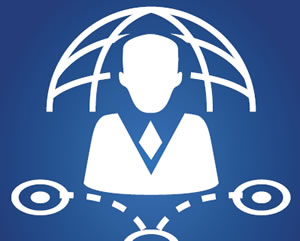Preparing the Supervisors
 As budgeting and resources become an ever more important topic in facility management, properly supervising employees becomes a keystone to success. Many supervisors in the facilities field have worked their way up through the ranks and oftentimes had only limited education on the tasks associated with supervising. The lack of education on both soft and hard skills, along with the increased responsibilities associated with supervisory positions, create the perfect storm for a dysfunctional department.
As budgeting and resources become an ever more important topic in facility management, properly supervising employees becomes a keystone to success. Many supervisors in the facilities field have worked their way up through the ranks and oftentimes had only limited education on the tasks associated with supervising. The lack of education on both soft and hard skills, along with the increased responsibilities associated with supervisory positions, create the perfect storm for a dysfunctional department.
This dysfunction may not be seen in the short-term; it takes time and even specific situations to bring out the inabilities of certain individuals or organizational segments. When these situations arise, it negatively influences not just the people involved but also the operation as a whole. Nonunion environments could force a manager or owner into a compromising situation, while union workers place added stresses on their superiors for quick resolutions. Either situation severely stresses the department structure and can lead to wasted time and resources.
These challenges can be avoided by providing opportunities for current and future supervisors to expand their knowledge base, away from just on-the-job training, and into a more formal setting. Many times, training, education or seminars are met with resistance from employees. The key is providing industry-specific learning and tutoring opportunities that create real-time benefits for supervisor-level employees. This means that the content must be directly applicable and actionable upon return to the job; otherwise, the education experience is wasted.
Oftentimes, regular human resources training lacks the ability to reach these goals and true success — increased job skills — isn’t achieved. There are several key areas that supervisor education and training must effectively reach in order to create a successful program.
Disposing of Bad Habits
Supervisors often gain the position through tenure or being next in line after a retirement. It’s the responsibility of management to assist in creating a proper analysis of the best candidates for supervisor promotions. That being said, the tenure of employees can often be filled with misplaced representation or, sometimes, downright inaccurate information. How does a supervisor learn to break these trends and become open to other experiences? Through interaction with other supervisors who share the same experiences and have taken a different approach, supervisors can learn how to accept change.
Adapting to change is never easy, but sharing the experience with those who are in similar position exposes supervisors to a world of learning and growth opportunity. This adaption to new philosophies may not be the easiest transition, but it is undeniably necessary in order to continually advance the success rate of a department. In a facilities department, ridding the supervisors of bad habits can generate a trickle-down effect that creates transparency in operations. This open flow of knowledge and resources will lend itself directly to increase capabilities within a department, including more effective problem solving, time management and cost control.
Reinforcing Organizational Structure
Establishing a supervisor as an extension of the management function is a challenge because of the tenure issue as well as lack of experience in managing. Though the position may only require limited management responsibilities, it does create an uncomfortable situation for those who are now managing employees that they were once equal colleagues with in the field. Adapting to this change is always challenging, and supporting those supervisors in this position by reaffirming their standing within the organization is essential.
Clearly defining the organizational chart and job functions (see diagram) can increase the baseline from which supervisors work their day-to-day tasks. Supervisors hold a unique position; a middle-management post that requires communication flow from all levels. They must vertically take command from upper management and distribute the strategies effectively to their subordinates. Supervisors will also often work together in order to establish a more advanced plan on work distribution, resource allocation and operations management.
Planning for the Long Term
Facilities personnel are frequently the last to be thanked and the first to be blamed for the work they do. Setting long-term goals and strategies to reach them is important when considering the variety of situations that can arise — and become problems — on any given day. When looking for these longterm goals, executive-level management needs to consider the organizational effects associated with the culture of a facilities department. The leaders involved in the delegation of strategies need to be well aware of their influence on the organization and the value they add to the organizational culture growth stream.
Educating supervisors on how to effectively assess the quality of their leadership and ability to directly influence staff is imperative to long-term organizational stability.
Understanding the Conundrum of Managing People
Whether its Maslow’s Hierarchy of Needs, Freud’s psychoanalysis or even the Myers-Briggs Type Indicator assessment, understanding and managing people are challenging. On a day-to-day basis, supervisors may need to be counselors, dictators and politicians in order to make an operation run smoothly. Those who embrace these challenges often find themselves more successful and satisfied than others in the same position.
It’s a combination of art and science that goes into understanding how to get the most out of employees; specifically, the unique aspects with a facilities department. Educational opportunities that can teach soft skills to supervisors are vital in building a successful department. These skills lead to increased employee engagement and a culture that aspires for success, while creating job satisfaction for employees.
This article originally appeared in the issue of .
About the Author
Matt Moberg is associate director for the Cleaning Management Institute (www.cminstitute.net).